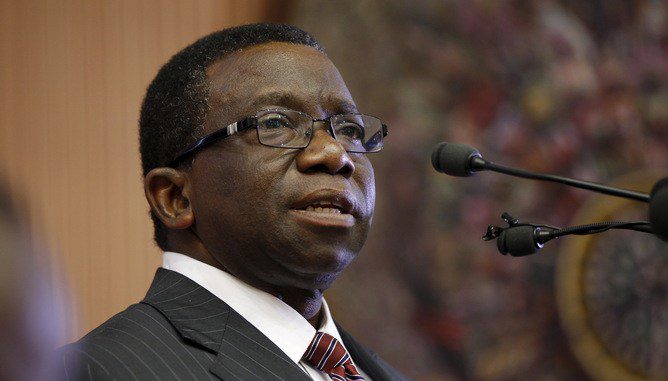
As cases of cancer morbidity and mortality continue to mushroom globally, only a robust, comprehensive and well-funded response can help to contain the unbridled spread of the killer disease. But, for years, these critical elements have been lacking in Nigeria’s response. This is why the recent enunciation by the Minister of Health, Isaac Adewole, of a vision of a nationwide cancer screening offers a rare glimmer of hope.
Screening is at the heart of any effort to stem the tide of cancer deaths, as early detection remains the only hope of a cure for a disease that has emerged as one of the leading causes of morbidity and mortality in the world. Figures from the World Health Organisation confirm that cancer is a major killer. According to the global health agency, the disease was responsible for 8.8 million deaths in 2015, translating to one in every six deaths. In 2012 alone, WHO said there were 14 million new cases of the disease globally and that number would be expected to rise by 70 per cent in the next 20 years.
In an interview last year, Abayomi Durosinmi-Etti, a professor of Oncology and President, Cancer Education and Advocacy Foundation, said the disease had assumed an epidemic proportion in Nigeria. It is estimated that 10,000 Nigerians die every year from the disease. But due to the absence of a diligent record-keeping culture in the country, it is possible that much more people die than the official statistics tend to portray.
While Adewole put the number of new cancer cases in the country at 250,000 per annum, the Committee Encouraging Corporate Philanthropy, a private-sector fundraising platform by mass medical mission, two years ago, painted a more graphic picture of its devastation in a statement that said, “Thirty Nigerian women die every day of breast cancer; one Nigerian woman dies every hour of cervical cancer; 14 Nigerian men die daily of prostate cancer; one Nigerian dies every hour of liver cancer; and one Nigerian dies every two hours of colon cancer.” Confronting cancer, therefore, requires a concerted effort.
Cancer, as defined by WHO, entails “the rapid creation of abnormal cells that grow beyond their usual boundaries, and which can then invade adjoining parts of the body and spread to other organs.” The spread, called metastasis, has been implicated in cancer deaths due to the difficulty in controlling it. Among the commonest kinds of cancer and their fatality rate based on 2015 figures are lung cancer (1.6 million deaths); liver (788,000 deaths); colorectal (774,000 deaths); stomach (754,000 deaths) and breast (571,000 deaths).
According to the International Agency for Research on Cancer, a WHO cancer research agency, the risk factors for the disease include ageing; tobacco use, including cigarettes and smokeless tobacco; being overweight or obese; lack of adequate physical activity; unhealthy diet with low fruit and vegetable intake; indoor smoke from household use of solid fuel; and alcohol use. Others include urban air pollution; sexually-transmitted human papillomavirus; human immunodeficiency virus and hepatitis B and C virus.
Once the factors that increase the risk of cancer are well known, it is possible to mount a campaign to prevent the spread of the disease. For instance, vaccination against HPV and hepatitis alone, experts opine, can prevent up to one million cases each year. WHO recommends avoidance of exposure to ultraviolet radiation as well as ionising radiation. Smoking should be shunned while a culture of regular exercising should be imbibed. Eating the right type of foods, rich in vegetables and fruits, and avoiding processed food, can go a long way in offering protection against cancer.
Although once thought to be a death sentence to its sufferers, advances in medical sciences have ushered in hope of cure when detected early. The critical elements of lack of early detection and wrong diagnosis have condemned many Nigerians to an early grave. Many of them have ended up in Indian hospitals where, after spending a fortune, still end up losing their lives.
That is why Adewole’s screening programme, if well implemented, would be critical. WHO experts believe that, “when detected early, cancer is more likely to respond to effective treatment and can result in a greater probability of surviving, less morbidity and less expensive treatment.” At the inauguration of the special health intervention project in Abuja, the minister said, “The ministry, through her tertiary health institutions, will be conducting free screening for cervical and breast cancers among eligible women and prostate cancer for men above the age of 50 years.”
This is very desirable in a society where many people have no access to such specialised health care services either because they cannot afford it or lack knowledge of their existence. But the Federal Government can go beyond just offering free screening to 250,000 Nigerians. In a country with estimated 193 million people, there is the need to make access to cancer screening more universal. For instance, the government will achieve a far greater result if it is made a matter of national policy that cancer screening should be made compulsory for every patient, irrespective of what must have brought the person to the hospital.
END

Be the first to comment